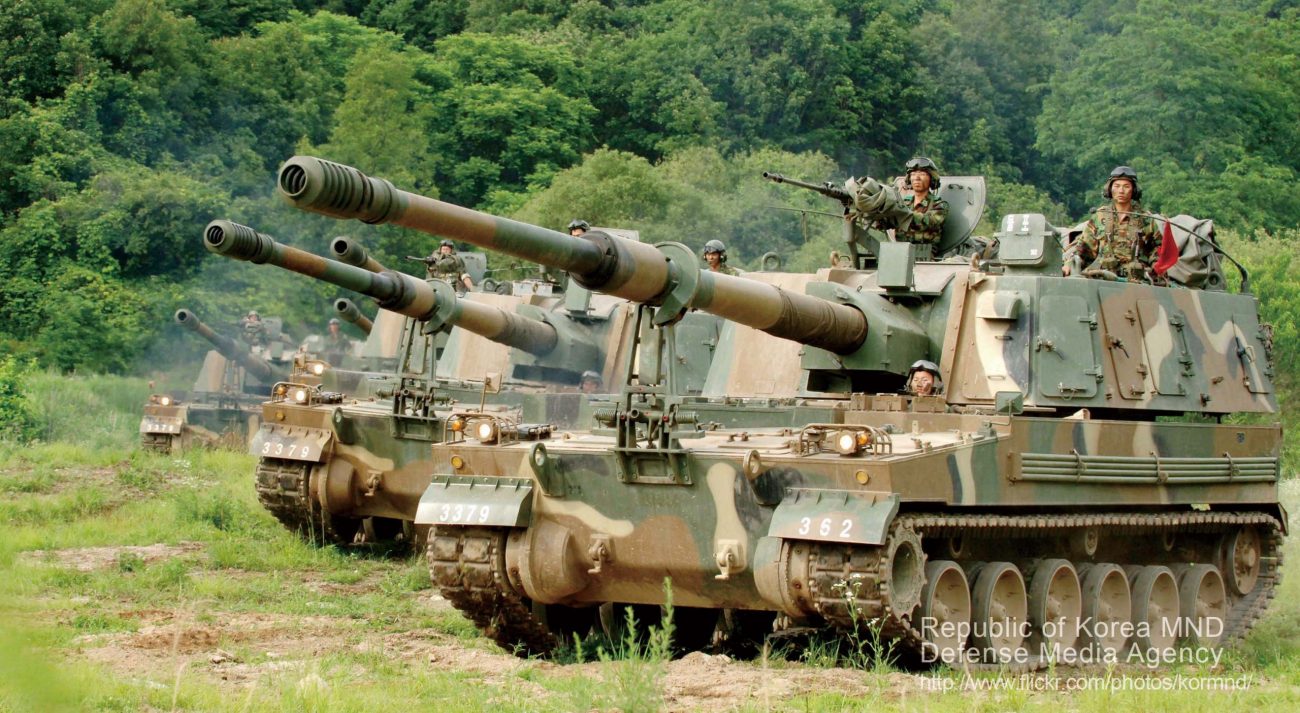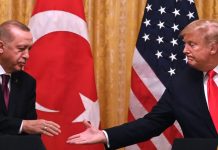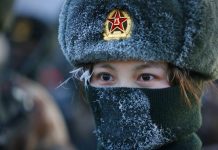India attaches great importance to “three principles of inclusiveness, trust and reciprocity’” for creating the basis for working more closely with like-minded partners in the Indo-Pacific, such as the Republic of Korea (ROK), better known as South Korea for “a free, peaceful and prosperous region.”
India’s external affairs minister, Subrahmanyam Jaishankar, seems to have conveyed this very candidly during his just-concluded two-day visit to Seoul, which was marked by the 10th India-RoK Joint Commission Meeting(JCM) held on Wednesday.
Representatives from several Ministries and Departments in the two governments attended the JCM, which provided the platform for a comprehensive review of bilateral cooperation.
Following Jaishankar’s interactions with the South Korean foreign minister Cho Tae-yul and national security advisor Chang Ho-jin, India and South Korea have agreed that given the two countries’ “special strategic partnership,” the two sides should further strengthen strategic communication and cooperation in the areas of defense and arms, establishing stable supply chains, critical & emerging technologies, semiconductors, green hydrogen, and human resource mobility.
They also agreed to jointly contribute to regional peace and stability, as well as a rules-based order, within the framework of Korea’s Indo-Pacific Strategy and India’s vision for the Indo-Pacific.
Multifaceted relations between India and South Korea have increased significantly in recent years. Prime Minister Narendra Modi and President Yoon Suk-yeol have met twice. Modi has been to South Korea twice, first in 2015 and then in 2019. President Yoon was in India in September 2023 to attend the G20 Summit in New Delhi, and his visit included an exclusive meeting with Modi to further augment the bilateral relations.
Economically, trade between the two is roughly around USD 25 billion. Companies of both countries have made significant investments in the other—ROK’s total FDI to India until June 2023 stands at US$8.02 billion. Investments from India to ROK are to the tune of approximately USD 5.2 billion, led by Tata Daewoo and Aditya Birla Group (Novelis).
Besides, India and ROK launched an initiative, ‘Korea Plus,’ to promote and facilitate Korean investments in India.
India and South Korea have also increased their defense and security cooperation. In addition to frequent reciprocal visits by military leadership, service-level staff talks have been conducted since 2018.
In 2019, the two countries signed a “Roadmap for Defence Industries Cooperation”. The idea here was that ROK, having the requisite technology and capital should collaborate with India under the ambit of ‘Make in India’ initiative.
In fact, this collaboration is exemplified by the development of the K9 Vajra, a 155mm, 52-caliber artillery gun, which is the Indian version of the K9 Thunder, produced by the Indian company L&T with Korea’s Hanwha Defense.

In addition, Indian companies are said to have reached out to reliable Korean partners to explore collaborations on utility helicopters, LT tanks, diesel submarines, lithium batteries for Future Ready Combat Vehicles, and submarines. Korean industry is also reportedly considering transferring various advanced naval shipbuilding technologies to support upcoming Indian naval projects, such as Mine Countermeasure Vessels (MCMV), Fleet Support Ships (FSS), and Landing Platform Docks (LPD).
However, all told, from Seoul’s point of view, the strategic partnership seems to have been dominated excessively by its economic prism of looking for new trade and profit-making opportunities in India, given its vast and fast-growing domestic markets. That is why experts say that “Seoul has yet to fully embrace New Delhi into its Indo-Pacific framework and continues to indulge itself in a short-term transactional approach.”
That, in turn, is because Seoul continues to take extreme precautions regarding China’s sensitivities towards its first Indo-Pacific strategy (IPS), entitled “The Strategy for a Free, Peaceful, and Prosperous Indo-Pacific Region,” which President Yoon published soon after assuming office in 2022.
The IPS was a bold move as President Yoon’s predecessor, Moon Jae-in, was not prepared to describe the region as Indo-Pacific, preferring to use the Chinese description of the region as Asia-Pacific. Though President Moon’s liberal policies towards both North Korea and China and the consequent thaw in Seoul’s policies towards Washington and Japan have been reversed by President Yoon, his IPS barely mentions challenges emanating from China.
South Korea’s IPS outlines some core lines of effort (LOE) centered around international norms, priority sectors, and cooperation through partnerships. Here, though South Korea’s deep commitment towards the international norms of rule-based order, democracy, human rights, nonproliferation, and counterterrorism have been included in the first three LOEs, a careful decision seems to have been made in not mentioning the countries in the region that do not share these commitments— especially China and North Korea.
LOEs 6 and effort seven are focused on strengthening cooperation in “critical domains of science and technology” and “climate change and energy security.” Suggesting how South Korea can help close the digital gap in the region, the IPS proposes collaborations in developing technologies, including semiconductors, artificial intelligence, quantum science, advanced biology, telecommunications, and space. Moreover, climate change and energy security are other areas highlighted for South Korea’s possible growing contributions.
It is thus apparent that while South Korea is very much committed to the peace and stability of the Indo-Pacific, it doesn’t want to be seen as one of those countries that may be viewed as targeting China. And here, there seems to be a gap between the approaches of New Delhi and Seoul.
India may not be naming China as such, but it is very clear whom the message is intended for when it says that its Indo-Pacific vision is geared towards establishing an inclusive rules-based regional order that is diametrically opposed to the ideas of the sphere of influence or regional hegemonic order. And by closely aligning with the U.S., Japan and Australia in the form of QUAD, India does not mind playing an increasingly pivotal role in shaping a favorable regional balance of power as far as the Indo-Pacific is concerned.
However, on its part, India seems to have appreciated this seemingly different approach towards the Indo-Pacific by Seoul if his remarks at the Korea National Diplomatic Academy on March 5 are any indication.
“As the idea of Indo-Pacific took root, many nations, groupings, and organizations examined it from their particular vantage point ….. It was noteworthy that the Republic of Korea, after careful consideration, also released its Indo-Pacific Strategy in 2022. My understanding is that it envisages a free, peaceful, and prosperous region based on three principles of inclusiveness, trust, and reciprocity. This certainly creates the basis for working more closely with like-minded partners”, he said.
Explaining why it is important that both work together, the Indian foreign minister said, “Part of the answer lies in the opportunities of the emerging world, especially those pertaining to new technologies. However, some of it also refers to the stability and predictability of the international economy as a whole. We are, therefore, impelled by both national interests and global de-risking.
To appreciate that, let us consider the factors of current volatility. In the last four years, we have seen the global economy and even global society devastated by the COVID-19 pandemic. Quite apart from the damage that it wrought, it completely disrupted the flow of goods and services. Thereafter, we are witnessing two conflicts that are still ongoing, one in Ukraine and the other in the Middle East. The latter has spread to the Red Sea, threatening maritime shipping between Asia and Europe. Climate events are another variable that we need to cater to because they will happen increasingly frequently.
“The world cannot be sanguine about such shocks in the future. On the contrary, we have to prove ourselves by creating redundant, reliable, and resilient supply chains. Trade and supply chain diversification is one aspect of such endeavors”.
“Trust and transparency” in cooperation on technological areas is extremely significant, according to Jaishankar. Here cooperation, he added, is not only limited to the world of AI and chips, of battery and electric mobility, of space and drones, of clean and green tech, and critical minerals and resources but also includes “human resources” and “skills”.
His point was that due to the lack of skilled human resources, the world is seeing considerable delays in critical projects in different geographies; India could be of help on this count, provided there is trust.
“Our expectation is that even within a few years, a very different larger ecosystem will take shape in India in this regard. I am sure that it will create more possibilities for collaboration between India and the Republic of Korea”, he said.
The Indian foreign minister displayed another important geopolitical outlook of India to his Korean audience. And that was the importance of “connectivity” in the international economy along with production, consumption, and technology.
“This is relevant for two reasons: one, that new production and consumption centers are not always as optimally connected as their capacities justify; and two, because historical linkages have been effectively disrupted during the era of imperialism. As a result, the world faces the challenge of creating the new while reviving the old. Recent initiatives in this regard have naturally reflected the changed economic standing of global players.
“From India’s view point, it is essential that there is a lateral connect from the Pacific to the Atlantic that passes through our country. This could well take shape when the IMEC (India Middle East Europe Economic Corridor) initiative gathers pace to the West of India in the Gulf and beyond and as the trilateral highway connects India all the way to the Vietnam coast. A very different but also intriguing possibility is the opening of the polar route from Asia to Europe. The Chennai-Vladivostok corridor is an effort to explore that option”.
Apparently, the Indian foreign minister would like South Korea to look towards India through a bigger prism, not limited by business opportunities alone. New Delhi would like Seoul to broaden the horizons of its strategic geography.
Is Seoul convinced of the Indian logic? Only time will tell.
- Author and veteran journalist Prakash Nanda is Chairman of the Editorial Board – EurAsian Times and has commented on politics, foreign policy, and strategic affairs for nearly three decades. A former National Fellow of the Indian Council for Historical Research and recipient of the Seoul Peace Prize Scholarship, he is also a Distinguished Fellow at the Institute of Peace and Conflict Studies.
- CONTACT: prakash.nanda (at) hotmail.com
- Follow EurAsian Times on Google News




